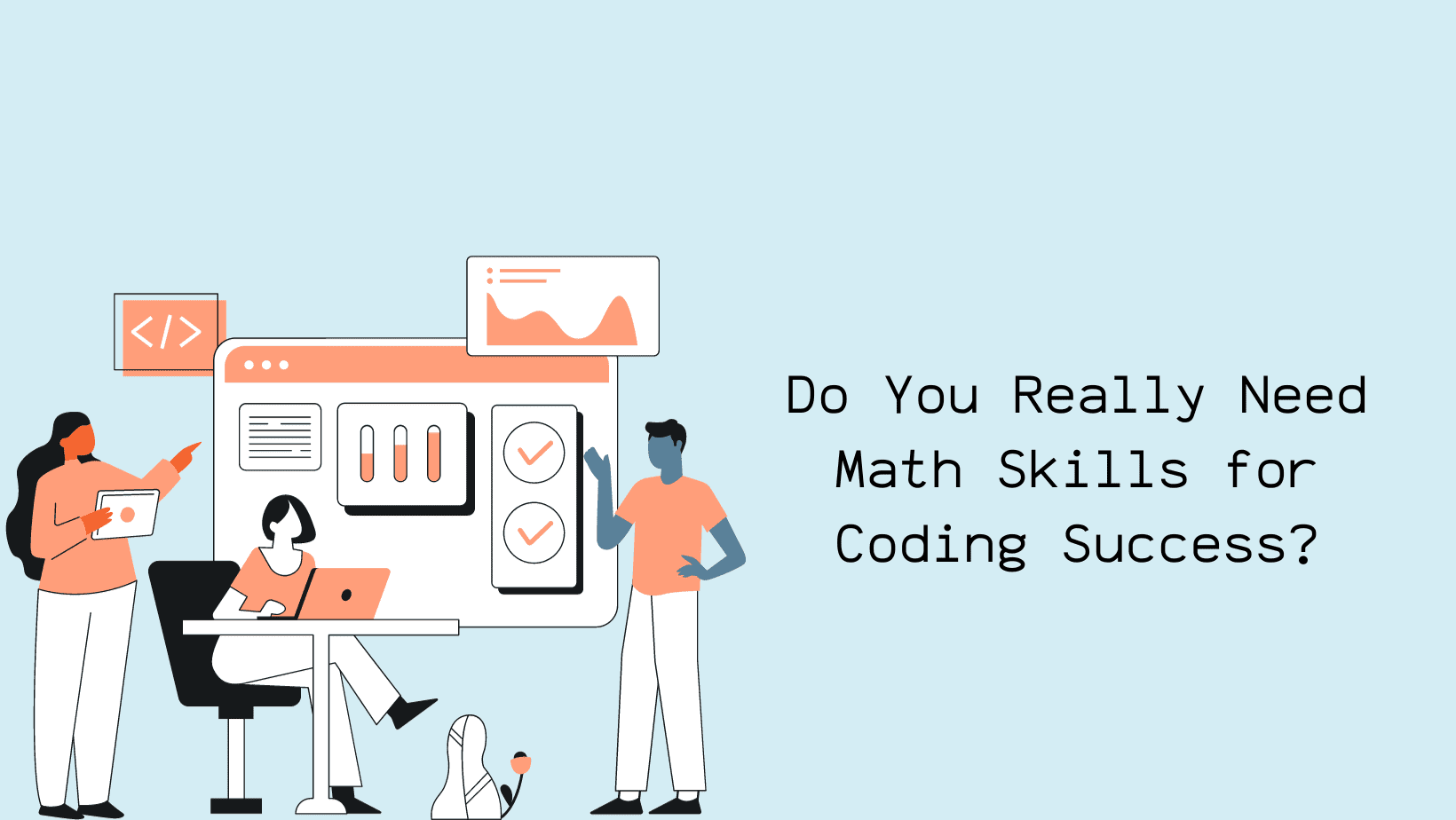Do You Really Need Math Skills for Coding Success?
 Khrystyna Klapushchak
Khrystyna Klapushchak
Hey, everyone:) My name is Khrystyna and I used to be a Math teacher back in my home in Ukraine. As I journeyed through university, immersed in the world of mathematics, I often heard others remark, 'You'd make an excellent software engineer with your math skills.' It's a common misconception that these two domains are intrinsically linked and that proficiency in one guarantees success in the other. I want to explore the connection between math and coding, look at situations where math comes in handy, and share some stories from my own experiences where people with strong math backgrounds faced challenges in programming.
There's no denying that math and coding are closely connected. Math is like the foundation upon which coding stands, and here are some areas where they overlap:
Algorithms: Coding often involves using math to create efficient algorithms.
Data Structures: Math helps in designing and understanding data structures like arrays or linked lists.
Graphics and Visualization: Think about video games or animations – math is behind the scenes, making everything look good.
Probability and Statistics: Fields like data science rely heavily on math for things like analyzing data.
Being strong in math has its advantages in coding:
Problem Solving: Mathematics sharpens your ability to dissect complex problems into manageable parts, a skill that directly applies to coding.
Abstraction: Math and coding both involve abstract thinking, so being good at one can help with the other.
Algorithms: Mathematical thinking is an excellent foundation for crafting efficient algorithms, a fundamental aspect of coding.
Predictive Skills: Math can help you predict your code’s performance in different situations.
Versatility: Math opens doors to different coding opportunities, from data analysis to encryption.
But, here's the twist – being a math genius doesn't guarantee coding success:
Overthinking: Those with strong math backgrounds sometimes overcomplicate things, making their code hard to understand and maintain.
User Focus: They may get caught up in the math and forget about making the software user-friendly.
Communication Hurdles: Explaining complex math to non-math folks can be tough, and good communication is key in coding.
Complexity Overload: Math experts might use complicated math when a simpler solution works just fine.
In conclusion, while math and coding are indeed connected, it's not a black-and-white situation. Having a strong math background can be a huge advantage, but it's not the only path to success in coding. My experiences have shown that even math experts can face challenges when they get too caught up in math or struggle to communicate their ideas effectively.
Ultimately, the role of math in coding depends on your goals, the specific area of coding you're interested in, and your ability to balance mathematical precision with practicality. Being adaptable and open to learning new concepts, whether they're deeply mathematical or not, is key to thriving in the ever-evolving world of coding.
Subscribe to my newsletter
Read articles from Khrystyna Klapushchak directly inside your inbox. Subscribe to the newsletter, and don't miss out.
Written by
